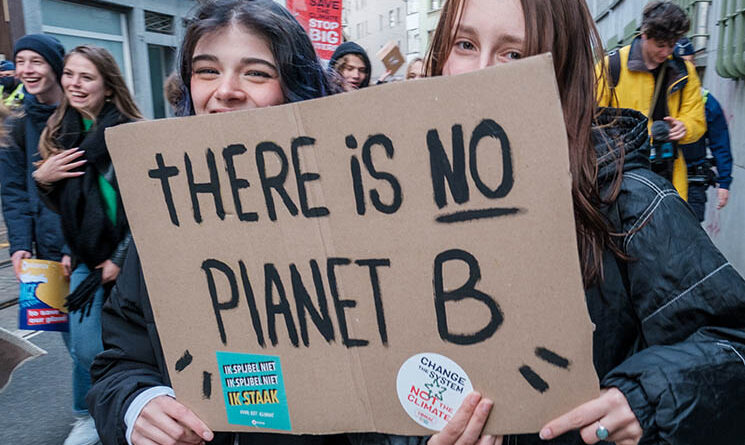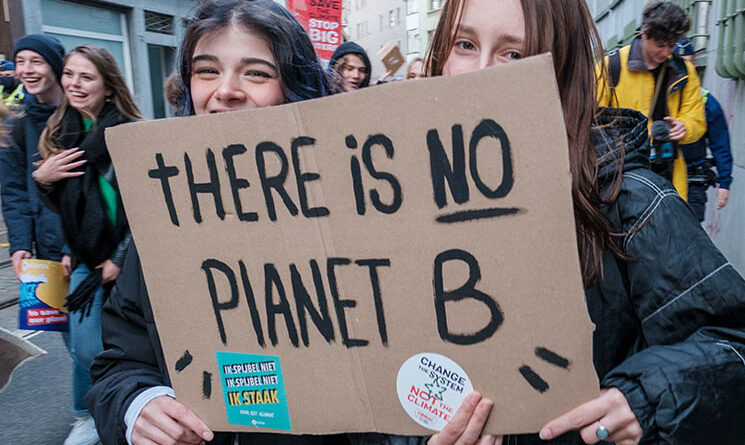
A recent study of 13 major banks in the United States found that there is a significant discrepancy between the banks’ public commitments to combat climate change and their lobbying activities. The Responsible Policy Engagement Benchmarking for Banks report indicates that while banks have publicly supported the goals of the Paris Agreement and pledged to align their lending and investments with net-zero emissions by 2050 or earlier, their lobbying activities do not reflect this support.
In fact, 92% of the banks surveyed have opposed or resisted Paris-aligned climate policies in the past three years. Furthermore, 75% of the banks have lobbied both for and against such policies, demonstrating a conflicting approach to climate policy engagement.
“Banks play an essential role in ensuring the nation meets its goals for cutting greenhouse gas emissions in half by the end of this decade and limiting global temperature rise to no more than 1.5-degrees Celsius,” said Steven Rothstein, managing director of the Ceres Accelerator for Sustainable Capital Markets at Ceres.
“Too few banks are meaningfully engaging with policymakers in alignment with their net zero goals. As banks continue to face increasing exposure to climate-related financial risks, it is critical that they use their policy advocacy resources to support and advocate for policies that reduce these risks and support the transition to a clean energy economy.”
The analysis shows that all the banks examined publicly recognize the existence of climate change and the need for policies to address climate risks and achieve U.S. emissions reduction targets. However, banks have been slow to seize recent opportunities to advocate for Paris-aligned policies, such as the passage of the Inflation Reduction Act, which is the largest and most significant climate investment legislation in U.S. history.
Only 5 out of the 13 banks in the benchmark independently advocated for specific climate policies, and not a single bank publicly supported the Inflation Reduction Act before it was passed. Nevertheless, Bank of America, Citi, Goldman Sachs, JPMorgan Chase, Morgan Stanley, and Wells Fargo, among others, encouraged their clients to take advantage of the opportunities provided by the legislation.
“Corporate advocacy for science-based climate policy can unlock significant investment and deliver action at scale,” said Dominic Gogol, Deputy Director of Policy for the We Mean Business Coalition.
“Ceres has pioneered the concept of responsible policy engagement on climate change for corporations, and the new analysis on the U.S. banking sector takes the application of responsible policy engagement to the next level – offering new insight and providing clear guidance for large banks. This kind of sector-specific analysis of corporations’ track record on climate change, trade association positions and relevant policy opportunities for engagement enables companies to close the gap between their climate ambition and advocacy.”
“Climate risk is increasingly important for financial institutions, and banks can no longer afford to remain passive regarding climate policy. This includes holding themselves and their trade associations accountable for their climate policy engagement,” said Blair Bateson, CFA, director of the Ceres Company Network at Ceres and co-author of the analysis.
“Individual institutions can take actions to protect themselves, but what they can’t do without policy is minimize systemic risk to the banking system as a whole.”
The benchmark analysis suggests that banks should support policies that assist borrowers in transitioning to a decarbonized economy and promote balanced regulation that reduces the risks associated with climate finance, improves disclosure, and positions banks and their clients for long-term success. Given their influence, banks, particularly larger institutions, should play an active role in promoting climate action to positively impact both greenhouse gas emissions and global economic stability.
In line with these recommendations, Ceres’ Ambition 2030 initiative focuses on six key sectors, including banking, with the goal of decarbonizing the most polluting industries by encouraging greater corporate action on climate change. These sectors, which also include electric power, food, agriculture, oil and gas, steel, and transportation, account for approximately 80% of total U.S. emissions based on 2019 data from the Environmental Protection Agency. Companies in these sectors are expected to engage in responsible policy engagement that is consistent with climate science.
The Ceres Accelerator for Sustainable Capital Markets released the Responsible Policy Engagement Benchmarking for Banks. This builds on the 2022 Responsible Policy Engagement Benchmark, which analyzed the management of climate-related risks, governance, and lobbying practices of companies in the S&P 100.
In fact, 92% of the banks surveyed have opposed or resisted Paris-aligned climate policies in the past three years. Furthermore, 75% of the banks have lobbied both for and against such policies, demonstrating a conflicting approach to climate policy engagement.
“Banks play an essential role in ensuring the nation meets its goals for cutting greenhouse gas emissions in half by the end of this decade and limiting global temperature rise to no more than 1.5-degrees Celsius,” said Steven Rothstein, managing director of the Ceres Accelerator for Sustainable Capital Markets at Ceres.
“Too few banks are meaningfully engaging with policymakers in alignment with their net zero goals. As banks continue to face increasing exposure to climate-related financial risks, it is critical that they use their policy advocacy resources to support and advocate for policies that reduce these risks and support the transition to a clean energy economy.”
The analysis shows that all the banks examined publicly recognize the existence of climate change and the need for policies to address climate risks and achieve U.S. emissions reduction targets. However, banks have been slow to seize recent opportunities to advocate for Paris-aligned policies, such as the passage of the Inflation Reduction Act, which is the largest and most significant climate investment legislation in U.S. history.
Only 5 out of the 13 banks in the benchmark independently advocated for specific climate policies, and not a single bank publicly supported the Inflation Reduction Act before it was passed. Nevertheless, Bank of America, Citi, Goldman Sachs, JPMorgan Chase, Morgan Stanley, and Wells Fargo, among others, encouraged their clients to take advantage of the opportunities provided by the legislation.
“Corporate advocacy for science-based climate policy can unlock significant investment and deliver action at scale,” said Dominic Gogol, Deputy Director of Policy for the We Mean Business Coalition.
“Ceres has pioneered the concept of responsible policy engagement on climate change for corporations, and the new analysis on the U.S. banking sector takes the application of responsible policy engagement to the next level – offering new insight and providing clear guidance for large banks. This kind of sector-specific analysis of corporations’ track record on climate change, trade association positions and relevant policy opportunities for engagement enables companies to close the gap between their climate ambition and advocacy.”
“Climate risk is increasingly important for financial institutions, and banks can no longer afford to remain passive regarding climate policy. This includes holding themselves and their trade associations accountable for their climate policy engagement,” said Blair Bateson, CFA, director of the Ceres Company Network at Ceres and co-author of the analysis.
“Individual institutions can take actions to protect themselves, but what they can’t do without policy is minimize systemic risk to the banking system as a whole.”
The benchmark analysis suggests that banks should support policies that assist borrowers in transitioning to a decarbonized economy and promote balanced regulation that reduces the risks associated with climate finance, improves disclosure, and positions banks and their clients for long-term success. Given their influence, banks, particularly larger institutions, should play an active role in promoting climate action to positively impact both greenhouse gas emissions and global economic stability.
In line with these recommendations, Ceres’ Ambition 2030 initiative focuses on six key sectors, including banking, with the goal of decarbonizing the most polluting industries by encouraging greater corporate action on climate change. These sectors, which also include electric power, food, agriculture, oil and gas, steel, and transportation, account for approximately 80% of total U.S. emissions based on 2019 data from the Environmental Protection Agency. Companies in these sectors are expected to engage in responsible policy engagement that is consistent with climate science.
The Ceres Accelerator for Sustainable Capital Markets released the Responsible Policy Engagement Benchmarking for Banks. This builds on the 2022 Responsible Policy Engagement Benchmark, which analyzed the management of climate-related risks, governance, and lobbying practices of companies in the S&P 100.


 US Banks’ Climate Commitments Inconsistent with Lobbying Practices: Ceres Report
US Banks’ Climate Commitments Inconsistent with Lobbying Practices: Ceres Report




 Companies
Companies